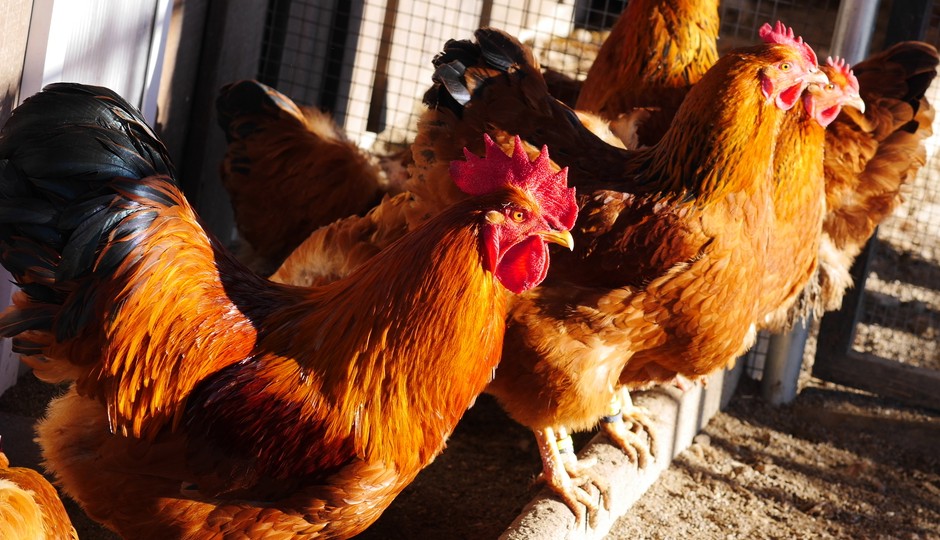Are Urban Progressives Hypocrites?

I’ll give you my humanely-raised urban chicken when you pry it from my cold, dead hands. | Shutterstock.com
You know the phrase today’s liberal is tomorrow’s conservative? Well, there’s an opinion piece in the right-leaning City Journal which turns that age-old adage on its head. Essentially, the piece is proposing that today’s (urban) liberals might actually be today’s (urban) libertarian. Well, at least sometimes. Mostly when it’s convenient for them.
Aaron Renn, a senior fellow at the conservative think tank Manhattan Institute, argues that progressive city dwellers — particularly young liberals — often show malleable political ideologies on issues of deregulation so long as they are particularly personal to them, whether it happens to be be looser traffic laws for bikers, allowing backyard chickens, eliminating height-restrictive zoning rules or abolishing minimum-parking requirements for developers.
This selective embrace of deregulation and pro-market principles is hypocritical, Renn argues. As he puts it, “it’s regulation for thee but not for me.”
One example: the urban Left favors decriminalization or even legalization of marijuana, but supports restrictions on tobacco use.
Consider how that has played out in Philadelphia. Last year, Mayor Nutter clamped down on smoking in public parks, a move which garnered general praise from left-leaning constituencies, such as the Green Philly blog, which called it “a giant leap for sustainability in our city.” Same goes for the ban on electronic cigarette vaping in restaurants. Josh Kruger, writing in Philly Weekly, endorsed the ban even after having an initial thought that he should oppose it — “my first instinct was to go libertarian,” he writes.
Then, a few months later, Mayor Nutter signed legislation authored by presumptive next mayor Jim Kenney, making Philly the largest city in the country to decriminalize weed. So Philly became a leading example of municipal-level pot reform even as it was cracking down on tobacco.
Is this a contradiction? Renn argues that it is. And he thinks the same of Philly liberals fighting to reduce the minimum-parking requirements in the zoning code (they were successful in doing so, when those requirements changed back in 2012). Or a bill to relax building heights and density limits in Center City. Or even the fact that young hipster-types are typically the poster children of the “sharing economy” — and companies like AirBnB and Lyft — which make a lot of regulators queasy.
It adds up to selectively elite biases, Renn believes:
The things that liberal-minded city residents like and want to do—eat from hip food trucks, smoke dope, and other “bourgeois bohemian” pursuits—should be left as free as possible, consequences be damned (raw-milk advocates downplay the nearly 1,000 cases of illnesses caused by it from 2007 through 2012). Those that they consider déclassé—Big Gulps, Marlboro Lights, McDonalds—should be restricted or even shut down.
But few people — politicians included — profess to hold uniform political ideologies that conform to traditional labels (progressive/conservative/libertarian) in every instance. Further, Renn builds a lot of his argument by citing articles written by urban progressives that call for various deregulations as evidence that the big city Left’s belief system is whacky on this count. However, those alleged contradictions are also aiming to improve quality-of-life measures that liberals hold dear.
For example, progressives who endorse the reduction of minimum-parking regulations in Philly argue that it’ll help reduce car usage and potentially lower rents. And arguments for eliminating height restrictions are typically done in the name of improving home affordability. Can’t those progressive ends justify the ideologically-impure deregulatory means?
Maybe or maybe not, depending on how deeply you believe in the sanctity of old political paradigms. But hearing urban foodies call for deregulation of backyard chickens or raw-milk cheeses doesn’t seem phony. Everyone has their own pet issues. It would be just as refreshing to hear libertarians quoting Upton Sinclair if they found their neighbors’ Cornish Cross chickens pooping all over their garden. Or to hear conservatives embracing height restrictions out of a desire to preserve family values and protect neighborhoods from 10-story developments.
Hewing too closely to traditional political labels can be devastating for civic discourse, as we’ve witnessed with the gridlock in Washington for, oh, seven years.So let’s not knock those urban progressives thinking outside the box.